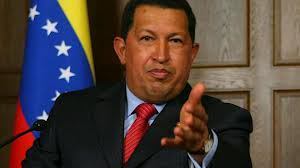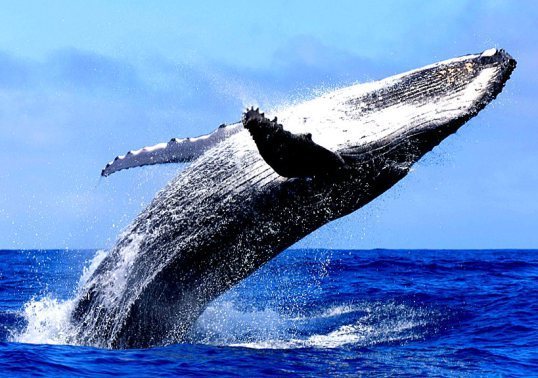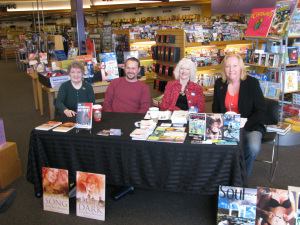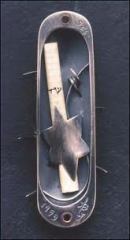Alon Shalev's Blog, page 20
March 12, 2013
Are You Greedy Enough? – Tom Rossi
By now I have seen Sheryl Sandberg, the COO of Facebook, on three different television programs, essentially trying to convince women to be more aggressive in their goal-setting. Sandberg and her interviewers seem to agree that there need to be more women in “leadership” positions, such as corporate CEOs.
I agree with parts of Sandberg’s message for women. For one thing, she points out that women are often not anxious to negotiate the best salary for themselves. I agree that the same work should pay the same, regardless of gender.
What concerns me is that she and her interviewers seem to agree, to take for granted in fact, that greed and/or megalomania are good. Not only are they good, but so obvious and desirable as a characteristic, that it’s hardly worth mentioning.
This was evident by the nature of the discussions during Sandberg’s interviews. In fact, the interviewers were quite careful to cover the angle that Sandberg might be saying that something is “wrong” with women, and that’s why there aren’t more of them leading major corporations. But of course, that’s exactly the point – that there’s something wrong.
A jaw-dropping moment came when Sandberg complained that only about half the percentage of women, as compared to men, want to become CEOs. Wow. Women don’t even know what they’re supposed to want! Get with it!
I can relate. I’m supposed to want a big house, with a three-car garage dominating and uglifying the facade. But I don’t. My wife and I would really like to, someday, be able to afford a decent condominium, maybe three or four flights off the ground, with an OK view, and not overlooking a freeway. We’re such losers.
At least my wife wants to be a successful author. But I basically want a part-time job, where I make a quiet contribution to environmental/economic policy, or something like that. I would love to be able to work in this area full time, but my damaged brain (come on… like you couldn’t tell?) makes that difficult. But even before my brain went bad on me, I just wanted to be a biology/ecology professor.
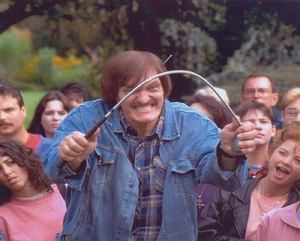
Docta say, I got dain bramage.
You see, my parents (I have four, thanks to the miracle of divorce and re-marriage) never instilled in me the desire to be a chipmunk. A chipmunk is greedy two different ways – in the short run, and in the long run. They pack their cheeks as full as they can with nuts and seeds that they find on the ground, then they hide as many loads as possible in various places in the forest. They never stop working. They never feel that they have enough.
The human chipmunks are the hoarders of society. And you are supposed to aspire to being like them. In fact, the chipmunks are completely certain that you ARE like them, you’re just not as good at being a chipmunk as they are.
Some of us, the non-chipmunks of the world, have non-megalomaniacal goals. A lot of these people, as it turns out, are women. I applaud those who see the world not as a field of competition, but as an organic substrate on which to create happiness and cooperation… and contentment. Even if a person is only watching out for his or her own family, these are much more admirable goals than being in charge of a huge, money-making operation.
It’s true that concentrations of wealth have yielded some benefits, things like MRI machines, for example. But, once again, these represent the exception, not the rule. Most of this concentration simply goes to toys (like yachts) and dominance of geopolitics through power.
I hereby give recognition to all those women (and men) who have chosen a path not acceptable to the chipmunks. No, there is nothing “wrong” with you. I wish you much success… in providing a decent life for your families, in trying to save up enough to enjoy a decent retirement, and in vying for the local bowling-league championship. We all have noble challenges in our own lives, and we don’t need to be told that we “should” want something bigger.
There are worthy goals that don’t involve outrageously lofty ambition, and sometimes those goals are right in front of us. Sometimes our noblest accomplishments are simply getting through our everyday challenges. Heck, my parents deserve a freakin’ medal for dealing with me through my teenage years. I wish I could pay them back someday, but I’m not a chipmunk, either.
-Tom Rossi
___________________________________________________________________________
Tom Rossi is a commentator on politics and social issues. He is a Ph.D. student in International Sustainable Development, concentrating in natural resource and economic policy. Tom greatly enjoys a hearty debate, especially over a hearty pint of Guinness.
___________________________________________________________________________


March 8, 2013
The Power of Power
If you have ever had a deeply spiritual moment when you just knew that all you believed in was in fact true…If you have ever looked at someone and known with absolute clarity that they are your soul mate…If you have ever stood in the presence of a great person, and known with total confidence that they are the real thing…
Such feelings rarely happen, but I am told that when they do, they are a moment of total clarity and that this is an awesomely powerful moment.
Last week, I was in Washington DC for work. We were able to sneak in a bit of sightseeing, a couple of monuments, and they were beautiful and poignant, even if I primarily discovered I possess a woeful ignorance of American history.
But when my work schedule had finished, a colleague invited me to meet a friend who works on Capitol Hill. We would get a tour and spend a few minutes chatting with him.
Now I am no great admirer of this or any American government that I have experienced. But there was something incredibly powerful as we approached the Hill. We received a tour by a young tour guide, who was articulate and proud. He peppered his descriptions with caveats, jokes and stories. But he never strayed from the responsibility and the gravitas that he felt he was representing something sacred.
We were introduced to the new statue of Rosa Parks, which stands near a small room that contains a bathroom, library and I am not sure what else, but it is only for the women representatives. Is there a nearer, more convenient bathroom for women? Of course there is. Women have been leaders here for 97 years. A proper woman’s facility was installed in 2008.
Then we met my friend’s friend, who works for a senator. He was a real-life West Wing person, only incredibly human. But between the jokes and the explanations, it became abundantly clear that he is deeply excited and honored to be a part of something special. He feels the thrill, every morning when he leaves the train station and sees the capitol building anew. He calls his senator ‘my boss,’ but does so with genuine love and reverence.
I would not consider myself someone impressed by beautiful domes, excited by statues and paintings, and especially not intrigued by men and women (but mostly men) in suits and ties with cell phones wrapped to their ears.
But there was something very powerful in the air: a sense of purpose, a sense of duty and responsibility. I know. I know, we are all so critical of these people and for good reason, but when you stand there under the great dome, in the marble halls, where numerous statues of great men and women stare down at you daring you to take courageous steps, you cannot but feel profoundly inspired.
You feel the presence of greatness, past and present, and it gives you hope for the future.
I have lived in the US for eight years, helped in two Presidential campaigns with only a twinge of remorse that I cannot vote. I have cheered my city’s team in the Superbowl and the baseball “world” (really?) championships without really understanding the rules or what we are eating.
I have criticized and campaigned against shameful flaws in this society. I have written novels where, under the guise of fiction, I have vented my anger at certain shameful traits of this society.
I have, I know, also seen beautiful mountains, lakes, forests, and oceans, but somehow they seem an act of God or something spiritual – beyond the realm of man.
But here on the Hill I met something built by the American nation. I experienced the heart of democracy and freedom, and for an hour, I truly felt its very pulse.
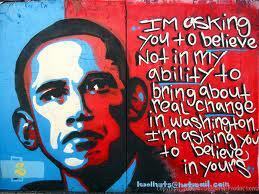
And I want to feel more. My friend turned to me and said: ‘how can you not want to run for office, to be a part of this energy?’ He had felt it too and I told him on the spot that if he ran, I would write his speeches. We laughed, but a small part of me was serious (he would be – actually already is – a very good leader by the way).
I am now back in California, in the city I love. But I have undergone a transformative change. I will campaign in the next Presidential election as a citizen and I will cast my vote. This month, I will begin the long path to citizenship.
After eight critical years, I no longer want to be an outsider looking in. I want to be a part. Even if that means learning American Football rules for when the ’49ers reach the Superbowl again next year.
I want to feel that heartbeat again, the exhilarating synergy of freedom and democracy. It makes what I write about, in my novels and my blog, all the more relevant. It makes me want to belong.
—————————————————————————————————–
Alon Shalev writes social justice-themed novels and YA epic fantasy. He swears there is a connection. His latest books include: Unwanted Heroes and At The Walls Of Galbrieth. Alon tweets at @alonshalevsf and @elfwriter.
.


March 7, 2013
Hugo Chavez – Roger Ingalls
At 58, Hugo Chavez, the President of Venezuela, is dead. How am I supposed to feel about this man? As a citizen of the USA, I’m expected to hate him because of his extreme socialism, reforms that nationalized many industries including foreign-owned businesses and railings against, what he called, US imperialism.
When Chavez became Venezuela’s president in 1998, close to 60% of his nation’s people lived in poverty and 25% of them lived in extreme poverty. Now, 15 years later, only a little over a quarter of the country’s people are below the poverty line with less than 7% falling into the extreme range. In addition, he established free public education for citizens of all social status, providing grade school through doctorial level studies. To further improve quality of life, Chavez created a national health care system free to everyone. Increasing the standard of living for so many, in such a short period of time, is an amazing achievement.
Venezuela is blessed with having a valuable natural resource, oil. However, the vast majority of its people never benefited from this treasured commodity. The riches went to foreigners from other countries. To heal his impoverished nation, Chavez seized the oil industry within Venezuela’s borders and used the wealth for the good of the people. His nationalization of industry angered the US because we lost control of oil in this region.
In the US, we are taught to believe people like Hugo Chavez are bad because their political and economic agenda differs from ours. However, I’m finding it difficult to hate or think badly of a man – a politician – that fought so hard for the good of his people. I hope to someday witness a US politician that fights this hard for his constituency.


March 6, 2013
The Mission Continues
Since the release of Unwanted Heroes, I have been meeting and talking with a number of war veterans. Some of them, I am ashamed to say, I have known for a long time and vaguely was aware that they donned the uniform.
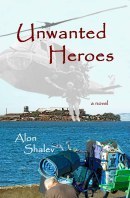
It might be because of this that the issues are high on my mind. It seems that every news site, blog, radio show seems to have some mention of it. It’s like if I told you not to count how many Ford Mustangs you see today …
So there I was on a rare foray into live TV and an advert came up for The Mission Continues. I have blogged about a number of non-profits who are helping war veterans absorb back into society, but this organization is different.
“A Mission Continues Fellowship involves 20 hours of service per week for 26 weeks at a local nonprofit organization. Fellows are encouraged to choose a nonprofit organization to serve based on their own personal passions. Current and Alumni Fellows have worked at organizations addressing issues ranging from disaster preparedness to education for low-income youth to training service dogs for wounded veterans. These host organizations include Habitat for Humanity, American Red Cross, Big Brothers Big Sisters, and Mothers Against Drunk Driving.”
In a world of entitlement, there is something resonating in men and women who have served in the armed forces, now becoming involved in forces that are building our society. From my experience of internships and fellowships, only the best seem to apply. They may have altruistic goals – building resumes, learning key skills, using the experience to check out a particular profession – but there are more materially rewarding options.
You might think that serving in the army is enough, and maybe it is, but the recognition that this nation’s finest, still have a role to play in defining the quality of this society, is powerful.
Check them out:
—————————————————————————————————–
Alon Shalev writes social justice-themed novels and YA epic fantasy. He swears there is a connection. His latest books include: Unwanted Heroes and At The Walls Of Galbrieth. Alon tweets at @alonshalevsf and @elfwriter.


March 5, 2013
A Whale of a Whaling Tale – Tom Rossi
U.S. appeals judge Alex Kozinski, last week, declared that the actions of the group known as the Sea Shepherds amount to piracy. The Sea Shepherds sail the oceans, chasing whaling vessels and trying to interfere with the killing of whales.
https://www.youtube.com/watch?v=EAFx56cd8iM
In 1976, the International Whaling Commission (IWC) set the quota for a certain species of whale found largely in the southern hemisphere at zero in an attempt to get around policy difficulties with bureaucracy. Japan promptly issued itself a permit to hunt whales for research purposes, as allowed by IWC rules, and to dispose of the meat and other valuable components on the Japanese market.
Since then, the Japanese have taken hundreds of these whales per year in the name of research… while making huge profits at around $50 per pound wholesale (and climbing) of whale meat. I’m really hoping they don’t start researching Italian Americans.
Several issues come up, here…
If whales are simply a resource to be harvested for our needs (or wants), then that resource should be preserved at optimum production levels. That isn’t happening.
One of the so-called strengths of our economic system (a system which is in force throughout most of the world) is that, as a resource becomes more scarce, its price rises, creating an incentive to develop new resources as replacements. But in the real world, as the price of a resource rises, the incentive that’s immediately created is to exploit every last molecule of that resource until it disappears.
The Japanese claim that whale populations are healthy and that their hunting, er… research does nothing to harm sustainability. But real research, not funded by those profiting from whaling, shows that whale populations are in decline.
But what if whales are not just a resource, like oil, but are living creatures that have some value, other than “use value?” Whales are intelligent and complex beings. They show surprising depth of emotion and their communications are stunning in their richness. Would westerners accept the hunting of chimpanzees for their meat? Or mountain gorillas?
https://www.youtube.com/watch?v=lUAUQa8C8zA
The fact is that Americans can’t even stomach horse meat. Why is that? Sure, there are stories that the current horse meat “crisis” has to do with horses from eastern Europe that may have been in poor health before they were slaughtered. But there’s something much bigger than that going on.
Americans would absolutely not accept even good quality horse meat, because America loves horses. Horse lovers cite the animal’s intelligence and sensitivity as reasons that they are so precious to them. And the image of the horse is one of a great friend to us – a partner, not a stock of meat.
Meanwhile, only a few people shed a tear for the cow. Cows are certainly not as intelligent as whales, or even horses. Is that the difference? So where do we draw the line? The Japanese harvest lots of intelligent creatures, such as the incredible cuttle fish. To them, the cuttle fish is a resource too.
https://www.youtube.com/watch?v=l1T4ZgkCuiM
Being a carnivore myself, I find that I cannot answer this question. It seems it’s another subtle judgement call. Prey animals, like cattle and chickens, make up an important part of the human diet (although vegetarians and vegans would disagree) as fish and deer and prairie dogs make up important parts of the diets of their natural predators.
But if we upset the balance of nature by ourselves hunting ocean predators, such as whales and tuna, the populations of the species that eat the oceans’ algae will explode. This will mean yet another huge insult to the world’s oxygen production, until the algae-eaters crash from an algae shortage. Their decaying bodies will then produce carbon dioxide, contributing to climate change.
By coincidence (not really), it is the predators that happen to be the most intelligent animals, with few exceptions. So maybe there are sentimental as well as practical reasons to curtail activities such as whaling.
A few years ago, I spent six months living in Japan. I really like Japan and its people. I made lots of good friends there and I hated to leave. And one of the great things about that country is its food – delicious, healthy, and incredibly varied.
The Japanese have eating habits that they are loath to change. Japan continues to fish bluefin tuna toward oblivion, for example, as its appetite for it hasn’t slowed in the least with news of crashing bluefin populations.
Habits die hard. But we need to see the science by squinting through the fog of political and profit-driven spin. The human population on this Earth is huge and growing. We have long since passed the point where our activities have significant effects on the functioning of the ecology that is our life-support mechanism.
https://www.youtube.com/watch?v=Brw6JN0lQXY
I’m not really sure if these are chief among the reasons that the Sea Shepherds risk their lives to protect whales and other sea creatures, or if they just want to preserve what little they can of the beautiful life on this planet. Either way, in the face of the unwillingness of politicians, worldwide, to slow the rate at which we change our world down to a level that can be understood in its impacts, they are bravely taking action. I wish we lived in a world were extreme action was unnecessary. But when the rates of destruction of important elements of our world are extreme, the wheels of politics turn too slowly, usually reacting only when it’s too late.
-Tom Rossi
___________________________________________________________________________
Tom Rossi is a commentator on politics and social issues. He is a Ph.D. student in International Sustainable Development, concentrating in natural resource and economic policy. Tom greatly enjoys a hearty debate, especially over a hearty pint of Guinness.
___________________________________________________________________________


March 1, 2013
An Imaginary Author’s Co-op
There are a lot of authors out there, a lot of books, and a lot of noise on the Internet. Each author racks his/her brain for an original idea to blaze a trail in one social media or another that will create the elusive momentum that will propel a series of book sales, of movie options, and publicity.
That’s a lot of work for one person, especially one who would prefer to sit behind a computer screen creating new characters, plots and worlds. Even more so, that comes after possibly a full time job, helping the kids with homework, paying the bills, working out…
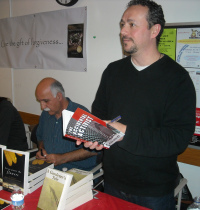 I believe I spend an hour a day blogging, tweeting, answering emails (as an author). I often do this with ease; either early in the morning, during a lunch break, or after my boys are in bed. But I am giving seven hours a week to promote myself and if I had more time, I would delve into Facebook, Goodreads, redesign my website, participate on other people’s blogs and forums.
I believe I spend an hour a day blogging, tweeting, answering emails (as an author). I often do this with ease; either early in the morning, during a lunch break, or after my boys are in bed. But I am giving seven hours a week to promote myself and if I had more time, I would delve into Facebook, Goodreads, redesign my website, participate on other people’s blogs and forums.
What if I spent that time promoting not only myself but also five other authors, all writing within the same genre? What if we parceled out each social media forum, not exclusively, but the person in charge of Twitter, for example, would delve deeper into how best to leverage this medium. We would all tweet, retweet, dm, and build our own twitter following, but the cross-pollination would make it six times as visible.
And then, we would offer extra time and focus when someone’s new book is published. We would write reviews on Amazon, on their website, interview them on our own blogs, and recommend them to friends. I recently went to a party and could have given my book-loving friend a book. She has read mine, but why not then give a copy from someone in my co-op.
It demands honesty and trust. We are all desperate to ensure our own success and need to rein in the tempting opportunity to promote ourselves to the detriment of others. A ‘friend’ stood up at a venue where I spoke, told everyone how great The Accidental Activist is, and how it reminds him of his novel… and he then went on to pitch his own.
One of the best events I participated in was a panel set up by the historical fiction author, JoAnn Smith Ainsworth. There were four authors and we all flowed in effortlessly. We had decided that Christine London, a romance author, would be our informal facilitator, and probably no one in the audience noticed as she occasionally directed a question to an author who had been quiet for a while. The audience was considerably bigger than it would have been if it was only me appearing – there were fans of all genres.
I spent almost half my life on kibbutz and when we all worked for each other the synergy was amazing. Is it possible to replicate such mutual support in the world of promotion, sales, and money?
—————————————————————————————————–
Alon Shalev writes social justice-themed novels and YA epic fantasy. He swears there is a connection. His latest books include: Unwanted Heroes and At The Walls Of Galbrieth. Alon tweets at @alonshalevsf and @elfwriter.
.

February 28, 2013
Little Quotes That Teach – Roger Ingalls
Freedom
“There is no such thing as a little freedom. Either you are all free, or you are not free.” Walter Cronkite
“A friend is someone who gives you total freedom to be yourself.” Jim Morrison
“Those who deny freedom to others deserve it not for themselves.” Abraham Lincoln
“Conformity is the jailer of freedom and the enemy of growth.” John F. Kennedy
“The secret to happiness is freedom and the secret to freedom is courage.” Thucydides
Politics
“Suppose you were an idiot, and suppose you were a member of Congress; but I repeat myself.” Mark Twain
“One of the penalties for refusing to participate in politics is that you end up being governed by your inferiors.” Plato
“We hang the petty thieves and appoint the great ones to public office.” Aesop
“We have, I fear, confused power with greatness.” Stewart Udall
Religion
“The World is my country, all mankind are my brethren, and to do good is my religion.” Thomas Paine
“Science without religion is lame, religion without science is blind.” Albert Einstein
“Whether one believes in a religion or not, and whether one believes in rebirth or not, there isn’t anyone who doesn’t appreciate kindness and compassion.” Dalai Lama
“It is in our lives and not our words that our religion must be read.” Thomas Jefferson
“Superstition is to religion what astrology is to astronomy the mad daughter of a wise mother. These daughters have too long dominated the earth.” Voltaire
Peace
“When the power of love overcomes the love of power the world will know peace.” Jimi Hendrix
“An eye for an eye only ends up making the whole world blind.” Mahatma Gandhi
“If we have no peace, it is because we have forgotten that we belong to each other. Peace begins with a smile.” Mother Teresa
“Observe good faith and justice toward all nations. Cultivate peace and harmony with all.” George Washington
Closing Arguments
“The mind is not a vessel to be filled but a fire to be kindled.” Plutarch
“All the great things are simple, and many can be expressed in a single word: freedom, justice, honor, duty, mercy, hope.” Winston Churchill
“Wisdom, compassion, and courage are the three universally recognized moral qualities of men.” Confucius
“If you have a garden and a library, you have everything you need.” Marcus Tullius Cicero


February 27, 2013
Remembering Ilan Ramon
Sometimes it is hard to forget that Israel is such a tiny country. It takes six hours to drive from the most northern point to the southern border with Egypt. I’m told you can fit 250 States of Israel into Texas. Our population is considerably smaller than New Jersey.
So when one of us excels in something we are all proud. I remember Maccabi Tel Aviv winning the European Basketball Championship or when Israeli soldiers rescued the prisoners at Entebbe.
So you can forgive us getting extremely excited when one of our own was chosen to fly into space – to boldly go where no Israeli has gone before.
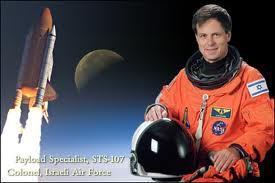 Ilan Ramon was chosen to join the ill-fated space shuttle payload specialist of STS-107, the fatal mission of Columbia, in which he and six other crew members were killed in the re-entry accident.
Ilan Ramon was chosen to join the ill-fated space shuttle payload specialist of STS-107, the fatal mission of Columbia, in which he and six other crew members were killed in the re-entry accident.
He was a man acutely aware of his place in history and the weight of his people on his shoulders. Ramon asked the 1939 Club, a Holocaust survivor organization in Los Angeles, for a symbol of the Holocaust to take into outer space with him. A barbed wire mezuzah by the San Francisco artist Aimee Golant was selected.
Against all odds, or perhaps a divine act, several pages of his journal impossibly survived. Curator Yigal Zalmona said: “The diary survived extreme heat in the explosion, extreme atmospheric cold, and then “was attacked by microorganisms and insects. It’s almost a miracle that it survived — it’s incredible. There is ‘no rational explanation’ for how it was recovered when most of the shuttle was not, he said.”[
Ramon wrote on the last day of the journal: “Today was the first day that I felt that I am truly living in space. I have become a man who lives and works in space.”
An entire nation mourned the tragedy. Three days later my second son was born. Asif Ilan never knew his namesake, but he proudly tells people of the man he was named after ten years ago, a man who reached for the stars.
We remember Ilan Ramon.
—————————————————————————————————–
Alon Shalev writes social justice-themed novels and YA epic fantasy. He swears there is a connection. His latest books include: Unwanted Heroes and At The Walls Of Galbrieth. Alon tweets at @alonshalevsf and @elfwriter.
.

February 26, 2013
Classism is Alive and Well on the Airlines – Tom Rossi
Unfortunately, my wife and I have to fly on the airlines a fair amount because we have family in various locations, including Europe.
Aboard a commercial airplane, the quality of the seat that you get depends on how much you are willing, and/or able, to pay. People with enough money sit in large, comfortable seats with plenty of room, while sardines, like us, get canned with some olive oil, sandwiched together in each other’s laps.
But it doesn’t end there. People in first class or business class get better food and better drinks, including perks like free champagne. They also get their own, dedicated flight attendants – the best ones, who treat their passengers like royalty instead of cattle on their way down the chute to be “bolted.”
First and business class passengers are allowed to board the plane first, so that they can be sure to have enough space in theoverhead luggage compartments for their carry-ons and jackets and so that they can get comfortable and… drink a glass of champagne.
First and business class passengers have their own bathrooms, where the “riff-raff” are not allowed. After all, we usually carry diseases and various and sundry types of filth. And it doesn’t end there!
In the terminal, before passengers even get near an actual airplane, the upper-classes (and sometimes coach passengers who have paid to join an airlines “elite club,” or something like that) don’t have to stand in long lines, no sir-ree. They have their own line with their own attendants. And they actually get tended to by a real human-being, whereas the poor folk wait for an hour to fight with a robot and wait their turn to get help from the one ticketing agent on slum duty.

No, this is not the New York Stock Exchange.
Then, the elite are swept into their private club-waiting-areas, where they don’t have to risk rubbing shoulders with the unwashed masses. They then magically appear to board the plane, before their admirers.
So what, you say? People who pay more get more. That’s the way things work. Well, that’s just fine. Capitalism at work. What bothers me about this is that the price differential between these levels, hell vs. heaven, is so, incredibly huge and unreasonable. Why can’t the airlines use some of the outrageous profits they extract from the superior beings to make life at least tolerable for the rest of us? Why can’t they cut their shareholder dividends by 1% so that coach passengers aren’t inhaling the hair of the person in the seat in front of them? Couldn’t they put just a little more padding in the seats?
I spent $160, after our last flight to Europe, for a chiropractor to literally straighten my ass out. My seat was incredibly uncomfortable (although I have to say that the staff on our Air France flights were very nice). Of course, this isn’t nearly enough that I could have just avoided this by buying a business class ticket.
The real purpose of the disparity between ticket categories is not to pay for extra room and services; the purpose is the separation, itself. The same principle behind the country club. While this principle doesn’t necessarily apply to every member, the purpose of a country club is to have a haven, away from home, where one is not at risk of contact with the working class.
First or even business class seats on an airline usually cost ten times what a coach seat costs. Is that to cover the cost of a glass of champagne? Is it to cover the cost of selling only four seats per row instead of 6? No. The supply side of the supply and demand equation is irrelevant, here. That price is what some people are willing to pay for a little more comfort, and a lot less exposure… to the untouchables of society – you and me.
The point here is that separation has almost no cost of production. In other words, it’s almost pure profit. The airlines charge $9,000 extra for a seat in business class, and for that they provide a little more space, some champagne, and some pampering. The cost of all this is certainly nowhere near this price. But this money get’s sucked out of the system in the form of almost-untaxed (especially with multinational corporations) capital gains for investors. That’s why it’s not used to improve travel for ALL passengers.
Some might say that things are this bad only because passengers shop by price alone. That they are obviously willing to suffer the indignities of flying coach in order to save money. Well, in our case, it’s family obligations that make us “willing.” If it weren’t for that, We’d only go on vacations that were within an hour’s drive.
At any rate, economics are so often used as justification for treating people like animals. Degrading others degrades the degrader. The airlines would only dignify themselves by dignifying their passengers, and doing away with the caste system. Unpack the sardines!
-Tom Rossi
___________________________________________________________________________
Tom Rossi is a commentator on politics and social issues. He is a Ph.D. student in International Sustainable Development, concentrating in natural resource and economic policy. Tom greatly enjoys a hearty debate, especially over a hearty pint of Guinness.
___________________________________________________________________________


February 22, 2013
Running with the Enemy…Forever
Running with the Enemy is the latest offering from Lloyd Lofthouse, author of My Splendid Concubine. I thought to review the book, but Lloyd is my publisher and mentor. Given the controversies currently surrounding reviews, I think it easier to present (with his permission) the first chapter and let you be the judge.
A word, however, about Lloyd: He served in Vietnam in the Marines and I can only imagine how difficult it is to return there in your mind when writing a novel. As I sent him chapters of Unwanted Heroes, a story about an Asian-American war veteran battling his PTSD seen through the eyes of a young Englishman who befriends him, I often wondered how Lloyd would cope with it. It took a lot of courage to return there, but as one war veteran said after reading Unwanted Heroes: it is a story that must be told.
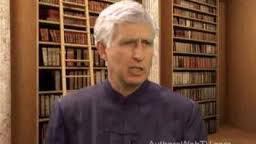
In this suspense thriller set during the Vietnam War, a rogue CIA agent needs someone to blame for his crimes. Recon Marine Ethan Card is the perfect patsy. As a teen, Ethan ran with a Chicago street gang, and he has a criminal record. He also has a secret lover, Tuyen, who is half Vietnamese and half French.
Tuyen is also a beautiful Viet Cong resistance fighter.
Since she was a young child, Tuyen has lived under the brutal control of her older, sexually abusive half-brother, Giap, a ruthless and powerful Viet Cong leader, who has forced her to kill Americans in battle or die if she refuses.
When Ethan discovers he is going to be court marshaled for weapons he did not sell to the Viet Cong and Tuyen will be arrested and end up in an infamous South Vietnamese prison, where she will be tortured and raped, he hijacks a U.S. Army helicopter and flees with Tuyen across Southeast Asia while struggling to prove his innocence.
The CIA agent and Giap—working together with the support of an unwitting American general—will stop at nothing to catch the two, and the hunt is on.
The star-crossed lovers travel across Laos to Cambodia’s Angkor Wat; to Bangkok, Thailand, and then to Burma’s Golden Triangle where Ethan and Tuyen fight a ruthless drug lord and his gang.
In the rainforests of Burma, Ethan also discovers that a massive assault is planned on his Marine unit’s remote base in South Vietnam with the goal of killing the man he admires most, Colonel Edward Price, who is the only one who believes Ethan is innocent.
Ethan must risk everything to save Price and his fellow Marines. Will he succeed?
—————————————————————————————————–
Alon Shalev writes social justice-themed novels and YA epic fantasy. He swears there is a connection. His latest books include: Unwanted Heroes and At The Walls Of Galbrieth. Alon tweets at @alonshalevsf and @elfwriter.
Running with the Enemy – Chapter One
On April 11, 1880, General William Tecumseh Sherman addressed a crowd of more than ten thousand in Columbus, Ohio, and said, “There is many a body here today who looks on war as glory, but, boys, it is all hell.”
***
His lover—a member of the National Liberation Front—was trained to kill Americans. It was possible that she had already killed some of his people, but that wasn’t going to stop him from wanting more of her.
Ethan Card stared out the sunken pit of a broken window at the grounds of the former French colonial rubber plantation, which the South Vietnamese rainforest was reclaiming. Columns of mature, struggling rubber trees marched away from the dying house as if they were soldiers fighting a losing war. A patch of blue sky was still visible, but the rest was an angry blanket of dark clouds.
When the French ruled Vietnam, Ethan thought, this place must have been something.
He heard the distant popping of a firefight that signaled combat and wondered who was dying: Viet Cong, North Vietnamese, Americans, South Koreans, ARVN, or Chinese communists?
The scuttle of a tiny, hard-shelled monster on the gray, wood floor of the second-story room distracted him. He knelt and flicked the insect away; watched it roll into a ball then, slipping into a crack, disappear into the floor.
The house creaked and he shivered. Before returning to the olive-green GI blanket spread on the floor behind him, Ethan looked around warily. Something did not feel right, and he paid careful attention to his warrior instincts.
He sensed Tuyen’s movement and glanced at the blanket where she lay nude on her stomach—her face cradled on her arms. Her long, dark, glossy hair hid most of her features. She was French, Vietnamese and Thai. At least that was what she had told him. There were other indications, as well.
In the village where they met, a Vietnamese woman called her a French bastard behind her back. He was sure Tuyen had heard and ignored it.
Her height and aqua eyes were French, but the rest was Asian. She was tall for a Vietnamese with the slender body of a fashion model. Admiring her nudity, he knelt and traced a line between her shoulder blades down her spine with his finger tips, stopping just above her hips.
Her silky, warm skin excited him causing his heart to race and his breath to catch in his throat. The urge to make love again was tempting, but they had already been in the deserted house too long.
“Why you fuck woman that fight with your enemy?” she asked in broken English.
“Because you told me you are not a communist,” he said. “Why are you fucking me?”
“Maybe you go home to America and replace me with other woman,” she replied.
He loved listening to her throaty, crude accented English.
“I am not a butterfly,” Ethan replied, “and, when I return to the United States, I’m taking you with me.” Otherwise, there wasn’t much for him in America but bad memories and a strict Evangelical Christian mother who often quoted Holy Scripture when lecturing him.
A loud creak sounded outside the shattered window. “What was that?” he asked, aware that discovery by either side would be disastrous for both of them.
A rumble of thunder shook the old house, and it started to rain. The fat drops pounded the leaky roof like a barrage of pebbles.
“It nothing,” she replied, as she rolled over on her back. “Only ghosts. This is old house.” Slipping an arm around his neck, she pulled him down on top of her.
Still, that creaking noise bothered him—it sounded as if someone had shifted weight from one foot to another. His combat sense warned him to listen closer, and when he did, he heard a rat scampering across the rotting attic floor above their heads.
“I think us together this morning too long,” she said.
“Maybe it is your Commie brother, Giap, spying on us.” He watched her features closely and noticed a quiver in her lips as heat climbed into her face at the mention of her half brother’s name.
“No,” she said, spitting her words out as if they were laced with cobra venom. “Giap recruiting in far village.”
Ethan knew that something dark and brooding existed between Tuyen and her half brother, but he couldn’t ask what it was. She had made it clear when the affair had blossomed months earlier that questions of her private life and family were forbidden. To cross that line could mean losing her, and she was his addiction—his opium.
Then as fast as the hate in her face had switched on, it vanished. “I loving you,” she said; then kissed him on the mouth. He felt a thrill shoot through his groin as her lips pressed against his. He should have stopped, but he couldn’t resist.
***
Victor Ortega picked up the pocket recorder from the windowsill and turned it off. He leaned against the wall and stared at the abandoned rubber plantation that spanned thousands of acres across hills where the jungle was still reclaiming the land. Raindrops from the swollen clouds pelted him. It was time to leave with his evidence.
A smile split his tanned, leathery face. Langley would not approve of him using his CIA skills to frame an innocent man. Ortega’s part-time business—the selling of weapons and information to the North Vietnamese Communists—had put Army intelligence on his trail. He needed a goat and Ethan and Tuyen fit the bill.
Ethan Card didn’t know it yet, but he was going to take the fall for Ortega’s illegal operations. Ortega had been watching several armorers, and because he had discovered Ethan fucking Tuyen, that link made him the perfect patsy. Card was having an affair with a member of the NLF who had a North Vietnamese Communist cadre leader for a brother. Who wouldn’t believe Card was guilty?
Using a miniature, silent camera, Ortega leaned into the window and took half a dozen pictures of the nude couple copulating for the third time.
Perfect! These photos would be the clincher. One shot had caught Ethan’s full profile and her face with eyes closed.
It was time for him to leave, and he had to be careful. Ethan was a recon Marine with a tiger’s senses. Ortega took a cautious step on the blue, rain-slick tiles of the veranda’s roof. He shifted his weight gently from one foot to the other. Then a crack sounded from one of the veranda’s tiles.
Oh, shit!
Icy fear shot through him galvanizing him into action. Moving quickly, he lay against the house below the window opening where the roof met the second-story wall. Holding his breath, he waited.
***
Ethan couldn’t dismiss the noise this time. He slipped from Tuyen’s embrace, rolled away from her across the floor and grabbed his forty-five caliber M3A1 submachine gun that he lovingly called his Greaser, because it fired four-hundred-fifty rounds a minute.
He waited until Tuyen had finished rolling the other way, picked up her AK-47 assault rifle and pointed it toward the offending window the sound had come from.
She nodded, and he darted toward the window to flatten himself against the wall next to it— his heart hammering from the rush of adrenaline.
Moving fast, he spun and aimed the Greaser out the window until he was flat against the wall on the other side. He stared at her and shook his head.
“We go,” she said, and gathered her clothing.
He watched her long, naked legs slide into black pants. “I can be here early tomorrow morning,” he said.
“Giap back. I no make it.” She slipped the black blouse over her head.
He was disappointed at losing sight of her naked body.
“We together in three days,” she said. “He gone again.”
He finished dressing, went to her, and placed a hand on each of her shoulders. They kissed.
They should have met in another time, another place where there was no war. He worried that someday what he had with her might end. That day would be a clusterfuck! There must be some way he could keep what he had with this lusty beauty.
***
Ortega, drenched from the rain and sweat dripping from his face, rolled down the veranda’s roof. He dropped easily over the side, twisted his body like a gymnast, and reached out to grab the edge of the roof above him. His brief grip with tiles slowed his momentum, and he landed easily on his feet. Turning right, he ran close to the house and sprinted for the trees.
***
An hour later, after driving miles through the rainforest, Ortega arrived at the United States Marine Corps recon base camp. Inside the fortified camp, he crept to the armorer’s van surrounded by stacked layers of sandbags.
The rain pounded the metal roof of the van, masking his entrance. Storage lined one wall of the long, narrow space and a workbench took up half the other wall. Shadows smothered the small desk at the far end of the van. To one side of the desk was a file cabinet that Ortega had searched a few times without Ethan’s knowledge. His eyes settled on Lance Corporal Wilson, Ethan’s assistant, who was bent over the bench working on a weapon. The man was an idiot; a fucking lowlife fool.
“Hey, man, did you pick up the fucking weapons at division?” Ortega asked.
Wilson yelped and jumped. “Asshole!” he said, and turned revealing the Ka-Bar he was holding close to his body with the blade’s edge facing Ortega.
Ortega laughed. “You’re such a fucking jerk.”
Wilson blushed and put the knife away. “They’re here.” He went toward the back of the van, returned with a crate, and put it on the bench. “It makes me nervous when you arrive this late to pick up the goddamned weapons. What if Ethan comes back early? What the hell would I say?”
“You worry too much, man.” Ortega reached into a pocket for a roll of South Vietnamese piasters, and threw the money on the counter.
“You bastard,” Wilson said. “I am taking all the risks. If Ethan find out what I’m doing, he’ll skin me alive. Do you know how crazy these fucking recon Marines are?”
“And do you know the strings I had to pull to get you, a regular piss-ant jarhead, assigned to this unit as its assistant armorer?”
Ortega stared with scorn at the lance corporal, and said, “Nothing will go wrong if you do as you are told.” He stopped talking and glanced at the wall clock behind the desk when a helicopter roared overhead. The thin metal roof of the van vibrated from the backwash. He knew it was the evening ass-and-trash flight to the division area at Chu Lai fifty miles away.
Once the noise of the slick was gone, Ortega continued. “You have nothing to worry about, alright, man? Soon, Ethan will be working for me.”
Wilson bared his teeth and pushed his face toward Ortega. “That’s easy for you to say. You don’t know the bastard. He lives by the rules.”
“It’s in the bag, man.” Ortega wrapped a poncho around the crate with the two M-60s in it. He shouldered the weapons and went to the door. “Now, cool it. Tonight I’ll make my pitch to Ethan. Then you won’t have anything to worry about.”
He left the van and went to his Jeep thinking he would have to kill Wilson soon. The man was unreliable and unstable.
***
Ethan returned from his business in Chu Lai to the recon base camp late in the afternoon. In his olive-drag Dodge M37 truck, he approached the steep narrow climb to the camp at the top of the orphan hill—an island fortress surrounded by rice paddies that in turn were surrounded by a dense rainforest.
A trailer-towing Jeep barreled down the dirt road toward him. Ethan automatically searched the paddies on either side for signs of life, hoping the demolition team had checked the road thoroughly that morning for buried explosive. Satisfied, he pulled his truck to one side, stopped, and waited for the Jeep to pass. His windshield wiper clicked back and forth clearing the raindrops from the glass.
He stiffened when he saw the man driving the Jeep. It was Ortega. The bastard had talked to him once—veiled, probing questions about weapons and how to requisition them. Ethan saw similarities between this man and members of Chicago’s Black P-Stone Nation street gang. As a teen, Ethan knew Jeff Ford, who had united the leaders of about fifty street gangs in Chicago and called the new organization the Black P-Stone Nation.
In fact, Ethan had run with one of the smaller street gangs that joined Fort’s organization, and when Ethan told his fellow gangbangers he was leaving for good, they jumped him and beat him ruthlessly. He’d arrived at the Marine Corps Recruit Depot at Parris Island bruised, limping and wearing torn and bloodstained clothing that didn’t impress the drill instructors. They rode him harder than the others for the next few weeks, but he welcomed the challenge and absorbed the discipline as if it were his salvation.
Ethan had been told that Ortega was a civilian liaison working with tribes living in the Central Highlands of Kon Tum Province, and that his job was to gain their loyalty to fight for America. However, the rumors also said he was CIA and had an army of Montagnards tucked away in the Annamite Mountains straddling the Laotian border with Vietnam.
***
Ethan inserted the M1911 Colt Forty Five’s new recoil spring as he finished reassembling the weapon, and then rubbed his hot, itchy eyes with the knuckles of his free hand. He had also replaced the barrel bushing to increase the weapon’s accuracy. The large wall clock showed three in the morning. He needed sleep, but there was too much to do. Lance Corporal Wilson was an expert at avoiding his job and seldom kept up with a day’s work.
Sensing movement behind him, Ethan reached for one of the twelve-inch throwing knives he kept on a shelf under the bench near his workstation. He glanced in a small steel mirror on the wall and looked at the face reflected in the polished metal.
“Shit!” He hissed. Putting the knife back, he picked up a rag and wiped his hands. “What do you want?” He faced Victor Ortega.
“We’re about to become fucking partners, man,” Ortega said.
“What the hell are you talking about?” There was something strange about Ortega’s voice. It sounded as though he had just smoked dope. Natasha, one of several girlfriends he had collected during his year in community college, had sounded that way after a few joints—something he never liked about her and one reason he dumped her before shipping out for his third tour in Vietnam.
Ortega spread half-a-dozen requisitions on the counter. “Take a good look at your name. These are fucking weapons you signed for, man.”
Ethan reached out, hesitating when the hill trembled from several artillery rounds going out. The roar of the mobile, armored one-hundred and fifty-five millimeter howitzers shook the hill and everything on it causing a thin haze of dust to rise from every surface.
When the battery stopped firing, Ethan took one of the papers and studied it. It was for two M-60 machine guns and the date was yesterday. “I never ordered these.”
“Of course you did. It’s your fucking signature. Look closer, man.”
The howitzers started firing again, and Ortega spoke louder. “I know for a fact that those weapons are in the hands of Viet Cong, and that there’s a bank account in Okinawa with your name on it. Check the fucking receipts in your file cabinet. They go back months. Some of those receipts are for weapons that have been found in the hands of dead Viet Cong.”
A cold shiver of disbelief invaded Ethan’s gut. His submachine gun was in reach, but the throwing knife was closer. “What the hell is this about?”
“These receipts say you’re going to fucking work for me, man. My customers want what you can supply. You are going to feed that demand. After all, the United States is a demand and supply economy. Anything for money. Say no, and I will hand these papers and others like them to Army intelligence. With your history as a member of a Chicago street gang, you’ll spend the next twenty years to life in a federal pen.”
Ethan couldn’t believe what he was hearing. He reached for his Greaser. “Wilson is mixed up in this, isn’t he?”
“Don’t be a stupid ass, man,” Ortega said, almost shouting to be heard over the roar of the howitzers. “I’m not in this alone, but I wouldn’t work with a fucking idiot like him.” The battery stopped firing leaving a sudden, shocking silence.
Ortega glanced behind him with disgust and lowered his voice to a near whisper. Instead of staring at the barrel of the submachine gun pointed at him, he looked into Ethan’s eyes. “Pull that fucking trigger and friends of mine will turn this evidence over to the Provost Marshall in Da Nang. It doesn’t matter if I’m dead. Your ass is still mine, man.”
Ethan tightened his finger on the trigger. It wouldn’t take much pressure to fire. “You’re bluffing.”
“Do it, man,” Ortega said, and rubbed the tip of an index finger along his top row of teeth. “Go ahead. You have all this fucking honesty and integrity to uphold.” His bark of laughter was chopped off short at the sound of troops running outside. Once the squad was gone, he said, “The people I work with are all over Southeast Asia. You want fucking power. You want fucking money. Join me and you will have both.”
Ortega moved closer to one of the storage racks and placed a hand on the barrel of an M-16. He caressed it as if it were a woman’s leg. “If the Army catches you moving the weapons, man, I’ll know it before they can get to you. When that time comes, I’ll set you up with a warlord in the opium trade in Laos near the Golden Triangle. That will put you hundreds of miles from Vietnam. The fucking Army cannot touch you there. That is a winning deal, man?”
“Fuck you.” But Ethan didn’t pull the trigger. “Maybe I should take you to the Colonel,” he said, “and give him these papers—let him hear what you want me to do.”
“That wouldn’t be smart, man,” Ortega said. “Do that and I’d tell him you caught me going through your files. The fucking rumors are true. I do work for the CIA. Who would they believe? You, a criminal that ran with street gangs in Chicago, or me, a career agent working to preserve democracy throughout the world?”
“I’m not going into business with you.”
“Well,” Ortega drawled, “there is the matter of a little Viet Cong pussy you’ve been banging. The way I see it, you love that slant-eyed snatch. The fucking Army will hear about her if anything happens to me or if you decide not to get with the fucking plan. She will look good sitting in that China Beach prison the ARVN keep for prisoners of war. Imagine what those South Vietnamese intelligence agents would do to her to make her talk.”
Rage pounded inside of Ethan’s skull, and he struggled to keep it under control. His finger twitched against the Greaser’s trigger.
The door creaked. Ortega slid into the shadows behind the door and vanished from sight.
Corporal Alex Smith stood in the opening staring at the submachine gun. With the night behind him, his face glowed as if he were a ghost. “Hey, Card, calm the fuck down and aim that thing away from me.”
Ethan’s friends called him by his last name.
”You work too hard. I went to three fucking places looking for you before I came here. I should have known. Belamy is putting the team together. We are going to Laos to pick up a downed Navy pilot. The air-rescue boys can’t get to him so get a move on. The slick flies in five fucking minutes.”
Ethan stared at him with a dazed look.
“Did you hear me?” Smith said. “Are you fucking shit faced or something?”
“I haven’t slept for forty-eight hours,” Ethan said. “Don’t worry. I … will be there.”
Smith nodded and disappeared in the shroud of darkness outside the van.
“When you have had time to think,” Ortega whispered harshly, “you’ll see how hopeless your situation is. Just remember, evidence is everything, and in a military court, you will be dead meat. I got you, man. You belong to me.”
Ethan looked at the silhouette of the man in the dark corner. “I’m taking you to the Colonel.”
“The Colonel ain’t here,” Ortega said. “He’s off to that ARVN ranger camp near Kon Tum. You’ll be going there when you return from Laos. That is, if you don’t get yourself killed first. The way I see it, man, you have only one choice.”
Ethan didn’t want to deal with this now. He grabbed his gear for the mission and left the trailer in a rush. The noise of a helicopter approaching the hill grew in volume.
The mission wouldn’t give him time to think about Ortega’s demands. Every skill he had would be called on to keep him and the team alive. There was no half effort in terrain controlled by an invisible enemy that wanted you dead. Maybe when he returned, if he survived, he would discover this was nothing but a nightmare—a joke or something. However, the anger and frustration filling him said Ortega’s threats were real.
***
After his confrontation with Ethan, Ortega flew in a Cobra gunship to the highland ARVN ranger camp.
Back in Puerto Rico in that fucking San Juan slum where he grew up, Ortega’s father had taught him how to read a person’s body language, and Ortega’s instincts said Ethan wasn’t going to cooperate.
He needed the Army to back off their investigation of the stolen weapons. Because Ethan wasn’t going to cooperate, Ortega decided to hand him over, and he would earn credit for solving the Army’s case, while staying in business.
He watched the sun splash brilliant colors across the horizon. The high mound of dirt to his right surrounded the camp and hid the bottom of the rainforest from his view. Logs and concertina wire ringed the top of the mound.
The tall, thin figure of Colonel Edward Price jogged into sight. Price, an African American, was in his forties with close-cropped dark hair peppered with white. Sweat soaked his camouflaged clothing.
“Colonel,” Ortega said, remembering that his old man taught him it was best to talk cultured when around people with money or power.
The Colonel stopped, but his legs continued to pump as he ran in place. Obviously, Price had been running for some time, and Ortega saw that he wasn’t the slightest bit winded.
“I thought it only right to let you know what one of your men has been up to.” Ortega took several forged requisitions and the photos of Ethan and Tuyen having sex and handed them to the Colonel.
Price’s legs stopped moving. His granite face remained expressionless as he studied the papers and the photos. “That’s Ethan Card,” he said. “Where did you get these?”
“Colonel, division will be contacting you today or early tomorrow,” Ortega said. “They want Ethan Card for selling weapons to the Viet Cong, and he will be court-martialed.”
“This cannot be true,” Price said. “Card is a good man.”
“General LaBourne in Da Nang feels differently. His people have been trying to find the traitor for months. Americans have been murdered by weapons Ethan Card sold to the Viet Cong. I recorded a conversation between Ethan and a Viet Cong woman that is his contact. There’s also a bank account in Okinawa in his name with too much money in it.”
Price lifted his gaze from the papers and pinned Ortega with his cold, gray eyes. “I know my men. I know Ethan Card. I don’t believe this crap.” He dropped the papers and the photos to the ground and resumed jogging without looking back.
Ortega knelt, picked up the evidence and smiled. He was pleased. The Colonel had reacted as predicted. With Price primed and angry, Ortega would now arrange through his contacts to make sure General LaBourne called the Colonel to Da Nang. The General was an Arkansas bigot. He and Price had a history stretching back to World War II. Once the two met, Ortega might as well order Ethan’s body bag.
______________________________
Running with the Enemy can be purchased at any of the following outlets:
.




